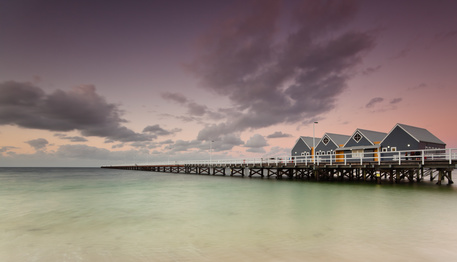 The first recorded mapping of what is now Geographe Bay and the eventual town of Busselton, was in 1801 by the French explorer Nicolas Baudin, from the ships the Geographe and Naturaliste. The Bay was named after his ship whilst the river was named the Vasse after a sailor who went missing in mysterious circumstances.
The first recorded mapping of what is now Geographe Bay and the eventual town of Busselton, was in 1801 by the French explorer Nicolas Baudin, from the ships the Geographe and Naturaliste. The Bay was named after his ship whilst the river was named the Vasse after a sailor who went missing in mysterious circumstances.
The area was settled in 1832 when families from the Augusta area, led by John Garrett Bussell, traveled north to farm the areas around the Vasse River after they found the Cape Leeuwin area to be largely infertile and difficult to reach by sea.
A growing port serviced the settlers and the subsequent local industries that developed which included the exportation of horses to India and a developing trade in beef, dairy and timber (which continue to be major exports of the Busselton area to this day). Construction of the Busselton jetty began in 1865 and by 1960 had reached out 2 kilometres from the shore.
Prior to white settlement, this area is the traditional land of the Noongar Aboriginal people with many Noongar names and travel routes still widely used today. The Noongar (which means “man”) people have occupied the south west area of Western Australia for around 38,000 years and their traditional stories tell of the Waagle (or Rainbow Serpent) giving life and sustenance to their people who in return were the caretakers of the land.
Enjoying a mild Mediterranean climate, the town and suburbs have grown along the shores of Geographe Bay and naturally enough water sports, tourism as well as a growing seafoods industry, feature highly in the local lifestyle and economy.
Located 232km south of Perth, Busselton has a population of over 25,000 and is one of Australia’s fastest growing centres with an average annual growth rate of 4.5%.
Western Australia is Australia’s largest state, comprising about one-third of Australia’s land mass and occupying over 2.5 million square kilometres in area. WA is divided into 10 regional areas – the South West, Mid West, North West, Peel, Wheatbelt, Great Southern, Goldfields-Esperance, Pilbara, Gascoyne and Kimberley.
The South West area of WA is one of the world’s great places to live, with a Mediterranean climate, sandy-white beaches, beautiful native forests and all the infrastructure expected of a modern western
society.
Many restaurants are open early and close late, with the remainder open in the evenings from around 6pm and for lunch around 12-2pm. There’s a bevy of fast-food options both within the city area and heading south towards Dunsborough and Margaret River.
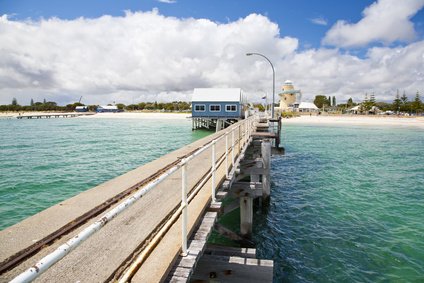 Busselton is the tourism hub in WA’s “South West”, an area that is home to the Margaret River wine region and major coal, alumina and mineral sands industries; a region that boasts around 8,000 businesses and a GDP of over $5 billion. Presently it is about a 2.5 hour drive from Perth to Bunbury, but this will be reduced by 30 minutes on the completion of the recently announced Bunbury Highway or Peel Deviation.
Busselton is the tourism hub in WA’s “South West”, an area that is home to the Margaret River wine region and major coal, alumina and mineral sands industries; a region that boasts around 8,000 businesses and a GDP of over $5 billion. Presently it is about a 2.5 hour drive from Perth to Bunbury, but this will be reduced by 30 minutes on the completion of the recently announced Bunbury Highway or Peel Deviation.
Busselton is the major tourism centre in WA’s South West region, that is also home to other centres such as Bunbury, Margaret River, Donnybrook, Manjimup, Augusta, Pemberton, Collie, Harvey and Bridgetown.
Busselton is well known for its jetty (the longest wooden jetty in the southern hemisphere) and its surrounding beach area. The jetty was previously in 2 sections, the main jetty and the railway jetty that converged, but in 1978 the main jetty section was destroyed by Cyclone Alby.
Today there is an ornamental train service that will ferry passengers the length of the jetty to a new underwater observatory on the sea floor. The underwater observatory is open 7 days and accommodates up to 40 persons.
The Busselton jetty is home to the world’s southernmost coral formations and host to over 300 individual marine species, being fed by the warm waters of the Leeuwin current from Indonesia. Busselton is also home to the world’s last native Tuart forest, just north of the Busselton town site at Wonnerup.
Another “underwater” feature is the HMAS Swan dive wreck, sunk in 30m waters off Point Piquet at Meelup in 1997. The Swan was the first ship in the southern hemisphere to be sunk as a dive wreck and is now a living artificial reef and home to King George Whiting, Bullseyes, Samson Fish, Dhufish as well as various plant and corals that are attaching themselves to and around the wreck.
Back on land, there are numerous property choices in the Busselton area ranging from small cottages to traditional suburban family homes and from beach retreats to rural or semi-rural properties.
There is a wide variety of attractions, with Busselton the home of many historic and often majestic historic homes and public buildings. One of these is Wonnerup House, at the south western end of the tuart forest.
Built by the pioneering Layman family from 1837 (the present Wonnerup House was built in 1859), George Layman, age 31, was killed after being speared by a local Aboriginal in 1841. Today Wonnerup House is a living museum, operated by the National Trust of Australia.
Other Busselton landmarks and places of interest are the Old Courthouse and Jail complex in Queen Street, the historic Ballarat steam train at the town entrance, the Cape Naturaliste lighthouse, St Mary’s church, the Old Butter Factory, numerous craft centres and wineries and then the host of dazzling Busselton and Dunsborough beaches, coves and points.
There are 3 secondary schools in the Busselton area, several shopping centres, sporting grounds including great golf courses and a public hospital.
Shops are normally open 8.30am-5.30pm Monday to Friday and 8.30am-5.00pm Saturdays with late night shopping until 9pm on Thursday. Several shopping areas have extended trading hours 7 days a week. Banks only operate 10am – 4pm Monday through Thursday and until 5pm on Fridays, although credit and building societies normally also open on Saturday mornings. There are a host of automatic teller machines and bank agencies dotted in and around Busselton.
Many restaurants are open early and close late, with the remainder open in the evenings from around 6pm and for lunch around 12-2pm. There’s a bevy of fast-food options both within the city area and heading south towards Dunsborough and Margaret River.
To get around Busselton there are ample modern taxis, a public bus transport service but we’d recommend hiring your own vehicle as many of the attractions are out of town. The Cape Naturaliste Tourism Association’s main base in Peel Terrace, opposite the Ballarat steam engine, will also assist with additional maps and local knowledge.
There are several Busselton medical practices and we have a listing of emergency medical contacts on our “Contact” page.
The main Post Office is in the CBD area near Bi-Lo, and postage stamps can also be purchased at local newsagencies. Postage for a standard letter, anywhere in Australia, is 50c.
Free to Air TV channels in Busselton are the ABC, GWN, WIN and SBS but many homes also receive the Perth networks 7, 9 and 10. Foxtel pay TV is also available. The electricity supply in Busselton, like the rest of Australia, is 240v. While you are travelling you can be updated on Busselton, Dunsborough and the South West region by turning to Western Tourist Radio. In Busselton turn to 96.5FM and in Dunsborough 98.4FM.
City and suburban locations in the Busselton area include Dunsborough, Yallingup, Jarrahwood, Vasse, Carbanup, Wonnerup, Broadwater, Geographe, Eagle Bay, West Busselton, Abbey, Quindalup and Bovell. There is a full listing of Busselton real estate in our Busselton real estate guide.
The Busselton and Dunsborough areas are also a popular retirement centre and the south west area is also now home to a substantial expat community from the USA, Canada, South Africa, Zimbabwe and Botswana. Our Busselton real estate guide is of obvious benefit to business migrants, retirees and the local Busselton community.
The Noongar Story in Busselton and the WA South West:
The Noongar people are the original human inhabitants of Busselton and the South West area of Western Australia. Today, as locals try to make sense of the established Western seasons, it is worthwhile examing the traditional Noongar seasons that divided the south west’s climate into 6 rather than 4 separate seasons.
In Noongar Aboriginal culture, Boojar (or land) is of the utmost importance. Each tribal group had their own kaleep or favoured camping locality, which held a special significence to them. The culture has a complex relationship to the land and pays respect to the seasons and the bountiful supply of food.
The Noongar year has six seasons, the first being from December to January. This season is called Birak where hot, easterly winds blow during the day and Noongar people used to burn sections of scrubland to force animals into the open to hunt.
From February to March, during Bunuru, the dry weather conditions meant Noongars moved to estuaries where fish constituted a large proportion of the seasonal diet.
During Djeran, in April to May, the weather was becoming cooler with winds from the south west. Fishing continued and bulbs and seeds were collected for food.
During the coldest season, Makuru (june to July), Noongars moved inland to hunt areas once rains had replenished inland water resources.
In Djilba, as the weather was becoming warmer from August to September, roots were collected and emus, possums and kangaroo were hunted.
In Kambarang, when rain was decreasing during October to November, families moved towards the coast where frogs, totoises and freshwater crayfish were caught.

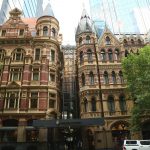
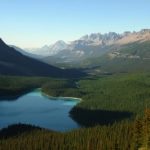
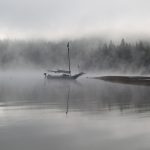
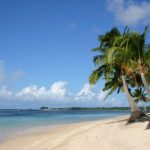

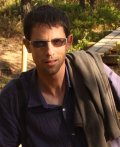
Leave a Reply